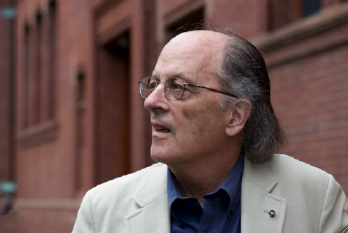Note: an audio version of this interview aired on WGBH radio in Boston!
Henry David Thoreau is justly famous for his book Walden, which tells the story of the two years he spent living by the pond, in the Concord woods. But he also wrote a journal, which he started at age 20 in 1837, and kept up until 1861, shortly before he died. This diary of Thoreau’s daily thoughts and experiences has just been published by New York Review Books Classics, which is celebrating its tenth anniversary this autumn. Edwin Frank, the editor of the series, speaks with ThoughtCast at the Harvard Book Store in Cambridge, Massachusetts.
To watch a shorter version of this interview, go to the NY Review Books Classics blog A Different Stripe! And to read a review on Thoreau’s Journal by intellectual historian John Summers, click here!
And for an audio version of this story, click here:  to listen. (8:34 mins).
to listen. (8:34 mins).
Podcast: Play in new window | Download
Subscribe: RSS


 Wall Street on Drugs: What motivated these former masters of the universe? And why did they act like kindergartners? ThoughtCast’s Jenny Attiyeh speaks with
Wall Street on Drugs: What motivated these former masters of the universe? And why did they act like kindergartners? ThoughtCast’s Jenny Attiyeh speaks with 

 Calling for Acronyms!
Calling for Acronyms!